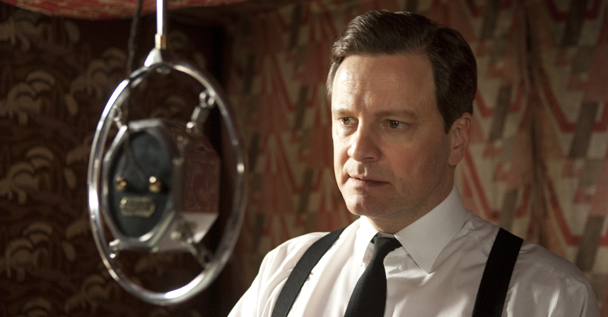The King’s Speech
An unlikely but well-deserved biopic of King George VI, the quiet man in Britain's twentieth century monarchy.
Plot summary
An exploration of the personal relationship that developed between King George VI, a reluctant king plagued by a nervous stammer and his unconventional Australian speech therapist, Lionel Logue.

The King’s Speech is an unlikely but well-deserved biopic of King George VI, the quiet man in Britain’s twentieth century monarchy. Known as the Duke of York prior to accepting his brother Edward’s abdicated throne in 1936, he is largely remembered for being Britain’s King during the Second World War. Here his formative years as an heir and King become the story.
Having stammered since childhood, the Duke of York (or Bertie to his intimates) struggles with his royal duties as a public speaker. He chokes his way through addressing a vast crowd at Wembley, who represent only a tiny part of the nation and empire that will hear the live broadcast. Anyone with even the mildest anxiety about speaking publicly will empathise; and that description surely includes most of the right-minded human race. It’s a pretty empathetic subject all round.
The minor niggle to this universalism is that it relates to an heir to the throne – a definitively privileged man. The viewer’s pleasure then lies in seeing how Firth, Bonham-Carter and Rush tease out the vulnerabilities of this superficially blessed character together. All three actors are excellently cast, and Bonham-Carter’s shrewd vagueness as the woman we came to know as the Queen Mother is well-judged. Geoffrey Rush plays the unconventional last-resort speech therapist Lionel Logue, an Australian who exudes the easy, cheerful confidence characteristic of his homeland. With Elizabeth’s encouragement, Bertie agrees to be treated by Lionel despite his irreverent techniques. The dynamic that emerges is reminiscent of the washed up mentor/ reluctant hero relationship beloved of sports and superhero movies, only this is upholstered in the grander HBO-with-bells-on manner befitting to its regal subject matter.
The direction is both artistic and emotionally evocative – one particular image of the future king sitting mute and alone, back-dropped by a cold green wall, suggests how his stammer and his position conspire to isolate him, and reinforces every line he speaks. Comedic reveals that undercut Bertie’s pomposity also draw laughs, as does a great deal of the general repartee. It’s an enjoyable film – the teeth-grinding tension resulting from watching a person stammer is regularly eased by the steady flow of jokes, the tale of King Edward’s dramatic abdication and the opulent royal locations. History has already given the ending away, but the final scenes are uplifting – movingly so.
The King’s Speech is arriving in our cinemas already wreathed in filmic glory – so far, it has won five British Independent Film Awards, and been nominated for seven Golden Globes. BAFTA and Oscar accolades surely await, and if not, those involved in its production can comfort themselves by reading stacks of warm reviews. The cumulative effect of this hype may be that it’s hard to live up to once the film hits your average cinema. This isn’t so much a criticism of The King’s Speech itself, more of the tendency amongst awards panels to canonize a particular type of historical films about curiously afflicted characters.
So there’s a tiny chance that those who’ve followed the jingoistic coverage in the UK press will come away disappointed – but if any film can please a crowd, it’s this one. It did have one unusual side-effect on me, though – after all that terribly British stammering, I didn’t half crave a cheeky bit of rap music.











COMMENTS